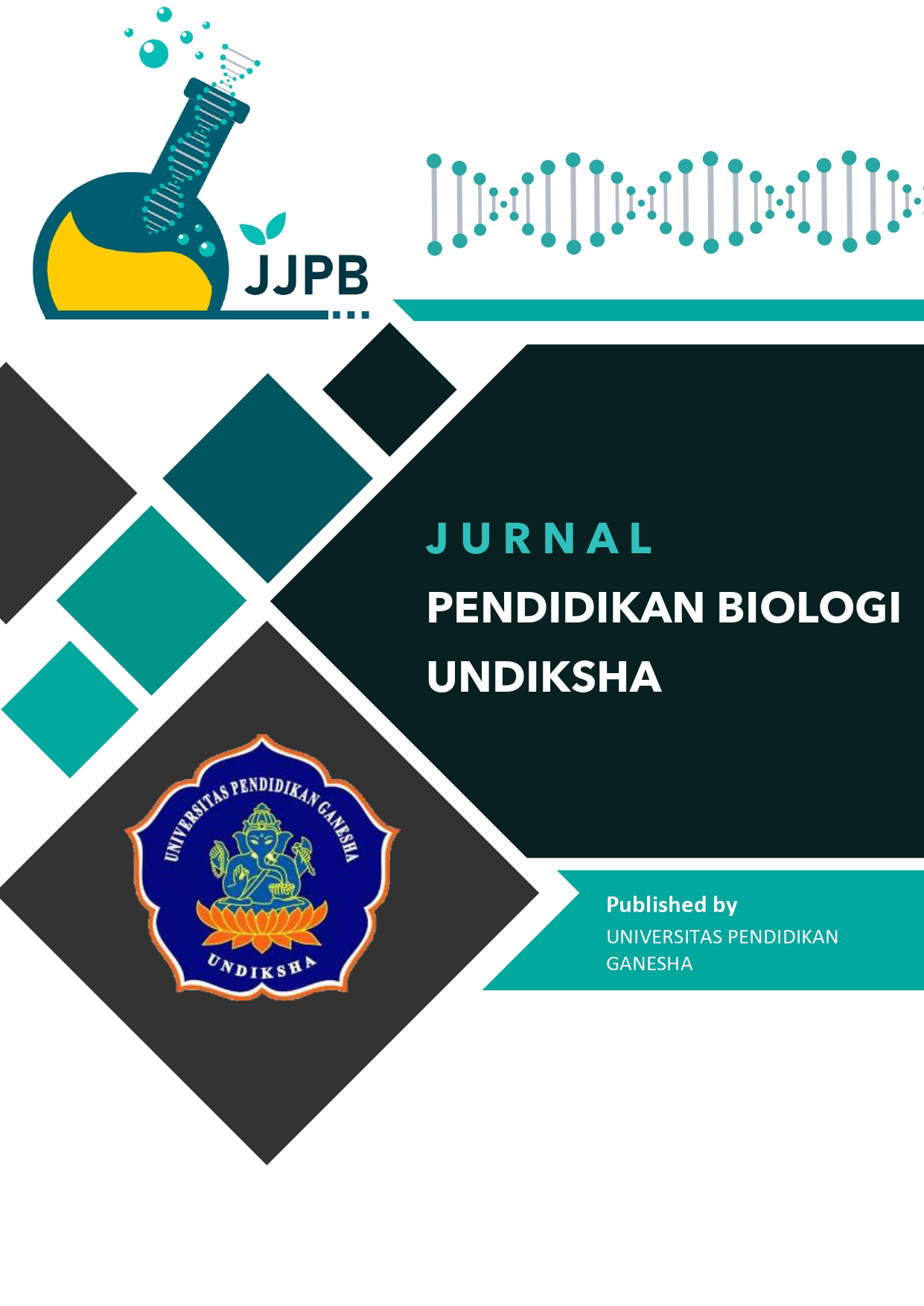Penerapan Model Pembelajaran Project Based Learning (PjBL) Berbantuan Poster Dalam Meningkatkan Kemampuan Literasi Lingkungan
DOI:
https://doi.org/10.23887/jjpb.v10i3.68769Keywords:
PjBL Learning Model, Poster assistance, enviromenal literacyAbstract
This research aims to analyze students' learning activities, examine the differences in environmental literacy improvement, and assess students' responses through the implementation of Project-Based Learning (PjBL) assisted by posters to enhance students' environmental literacy skills in the topic of environmental changes. This study involved two classes, an experimental group, and a control group, with a total of 30 students as the research sample. Data collection techniques included tests, observations, and questionnaires. The research design used was a pretest and posttest control group, with two classes receiving different treatments. The results of this study indicate a significant improvement in students' learning activities when implementing the Project-Based Learning model assisted by posters to enhance students' environmental literacy skills in the topic of environmental changes. The increase in students' learning activities from the second to the third meeting in the experimental class using the PjBL model assisted by posters for environmental change topics was higher compared to the control class. Furthermore, there was a significant difference in the improvement of environmental literacy skills between the experimental and control classes, with a significant result of sig 0.000 < 0.05. It can be concluded that Ho is rejected, and Ha is accepted. The student response questionnaire regarding the implementation of the PjBL model assisted by posters in enhancing environmental literacy skills showed that the average student response score was 72%, with 20% falling into the "very good" category, 67% in the "good" category, and 13% in the "fairly good" category. Therefore, the implementation of the Project-Based Learning model assisted by posters in improving environmental literacy skills in biology education can effectively enhance environmental literacy. Additionally, this approach provides students with direct experiences as responsible individuals for preserving and protecting the environment.
References
Apriani, W. (2017). Penilaian Kreativitas Siswa SMA Menggunakan Tugas Portofolio Online Melalui Jejaring Facebook pada Konsep Sistem Gerak Manusia.
Aat Syafaat,S.S. (2012). Sistem Pendidikan Nasional. Bandung : Citra Umbara.
Dianawati, E. P. (2022). Project Based Learning (PjBL) Solusi Ampuh Pembelajaran Masa Kini. Lombok : Pusat Pengembangan Pendidikan dan Penelitian Indonesia.
Endang et al, F. (2021). Pembelajaran Tematik. Aceh: Yayasan Penerbit Muhammad Zaini.
Hutahaean, L. A., Siswandari, & Harini. (2019). Pemanfaatan E-Module Interaktif Sebagai Media Pembelajaran di Era Digital. Prosiding Seminar Nasional Teknologi Pendidikan Pascasarjana UNIMED, 1(2018), 298–305.
Jufri, J., & Hasrijal, H. (2023). Implementasi Pendidikan Karakter Melalui Pembelajaran Berbasis Proyek (Literature Review). Journal on Education, 05(04), 16523–16528.
Nurlan, F. (2019). Metodologi penelitian kuantitatif - Fausiah Nurlan. Pare: CV Pilar Nusantara
Rochman, C., & Nasrudin, D. (2017). Profil Literasi Lingkungan Hidup Mahasiswa. Seminar Nasional Fisika dan Aplikasinya, 17–21.
Roth, C. E. (1992). Environmental Literacy Its Roots,Evolutionand Directionsinthe1990s. In Ed348235. Columbus,OH: ERIC Clearing house for Science,Mathematics,and Environmental Education.
Sholikhah, F. N., & Wahidah, Z. (2021). Penggunaan Metode Pembelajaran Guru Biologi Di Pasuruan: Analisis Persepsi Siswa. ALVEOLI: Jurnal Pendidikan …, 2(1), 16–29.
Siddiq, M. N., Supriatno, B., & Saefudin, S. (2020). Pengaruh penerapan problem based learning terhadap literasi lingkungan siswa SMP pada materi pencemaran lingkungan. Assimilation: Indonesian Journal of Biology Education, 3(1), 18–24. https://doi.org/10.17509/aijbe.v3i1.23369.
Sriyati, S. (2015). Pengembangan Bahan Ajar Perubahan Lingkungan Berbasis Realitas Lokal dan Literasi Lingkungan. Jurnal Pendidikan Biologi, 12, 151–161.
Sugiyono. (2015). Metode Penelitian Kuantitatif, Kualitatif, dan R&D. Bandung : ALFABETA.
Susongko, P. (2016). Pengatar Metode Penelitian Pendidikan. Tegal : Universitas Pancasakti.
Syahputra, E. 2021. Weeds Assessment Di Perkebunan Kelapa Sawit Lahan Gambut. J. Tek. Perkebunan & PSDL 1, (1): 37-4.
Widayati, S., & Rochmah, S. N. (2009). SMA/MA Kelas X. Jakarta : Penerbit Pustaka Insan Madani.
Yuniastuti, N. dan K. E. (2021). Buku Siswa Biologi SMA/MA Kelas 10 . Jakarta : PT Gramedia Widiasarana Indonesia.
Downloads
Published
Issue
Section
License
Copyright (c) 2024 novi purwati

This work is licensed under a Creative Commons Attribution-ShareAlike 4.0 International License.







